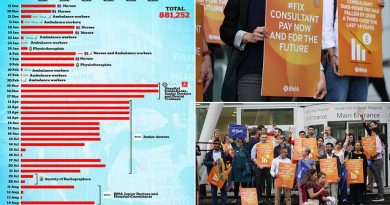Implementation science should give higher priority to health equity

Moving scientific research results into public health and patient care more quickly could have a significant impact on health equity, finds a new paper from researchers at the Brown School at Washington University in St. Louis.
Implementation science is the study of methods and strategies that help to speed evidence-based practice and research into regular use by public health and medical practitioners.
“The rallying call for implementation science is that it takes 17 years for 14% of original research to reach patient care—this is sometimes called the ‘biomedical valley of death,'” said Ross Brownson, the Steven H. and Susan U. Lipstein Distinguished Professor and a leading researcher on dissemination and implementation science.
He is co-author of the paper “Implementation science should give higher priority to health equity,” along with the Brown School’s Matthew Kreuter, the Kahn Family Professor of Public Health, and Debra Haire-Joshu, the Joyce Wood Professor; and Shiriki K. Kumanyika of the Perelman School of Medicine at the University of Pennsylvania. The paper was published in the journal Implementation Science.
“COVID-19 has revealed glaring and unacceptable inequities in the United States and globally,” Brownson said. “In implementation science, this is sometimes called the ‘translation gap.” The pandemic has also shown that when we mobilize political will and resources, we can speed up a process such as vaccine development that usually takes years and shrink that time frame to months.
“We now need to redouble efforts, apply principles from implementation science and deploy the vaccine to populations at highest risk of COVID—particularly minority groups,” he added.
In the paper, the authors propose a vision and set of action steps for making health equity a more prominent and central aim of implementation science, committing to conduct implementation science through equity-focused principles to achieve this vision in U.S. research and practice.
“Implementation science offers a roadmap for addressing the systematic injustices in research and practice necessary to achieve population health equity,” Haire-Joshu said.
With an intentional focus on health equity from funders, researchers, practitioners, advocates, evaluators and policy makers, the authors argue, the United States can harvest the rewards of the resources being invested in health-related research to eliminate avoidable disparities, resulting in greater health equity.
Source: Read Full Article



